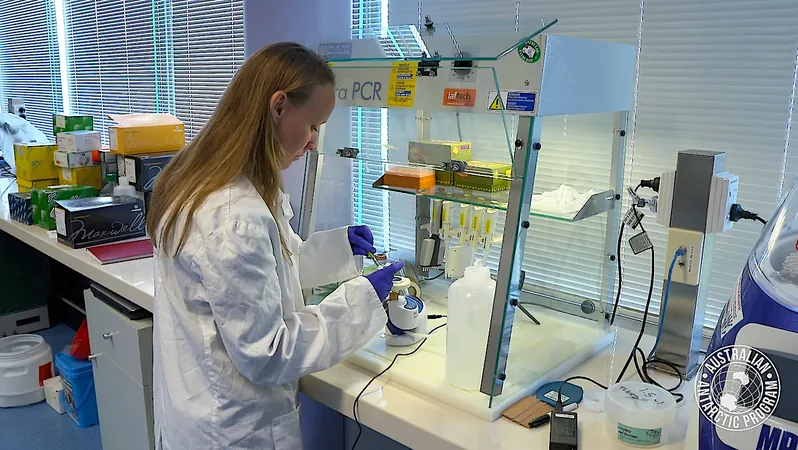
New Breakthrough in Lung Cancer Treatment: Pembrolizumab Shows Promising Survival Rates!
2024-10-01
Study Overview:
Conducted globally between May 2018 and December 2021, the KEYNOTE-671 trial involved 797 patients diagnosed with resectable NSCLC. Participants were randomly assigned to receive either pembrolizumab combined with chemotherapy (397 patients) or chemo alone (400 patients). The treatment protocol included four cycles of neoadjuvant pembrolizumab, administered every three weeks, alongside a cisplatin-based chemotherapy regimen, followed by surgical intervention and 13 cycles of adjuvant pembrolizumab.
Key Findings:
At the second interim analysis with a median follow-up of 36.6 months, the data revealed striking results. The overall survival rate at 36 months for the pembrolizumab group was 71%, compared to 64% for the control group. Notably, the median overall survival has not yet been reached for those receiving the innovative therapy, while the control group exhibited a median survival of just 52.4 months.
Event-free survival was also significantly enhanced, with a median of 47.2 months in the pembrolizumab cohort versus 18.3 months for controls. Additionally, patients receiving pembrolizumab required subsequent cancer therapy less frequently than those in the control group—30% versus 52%, respectively.
Safety Profile:
The safety profile of pembrolizumab remains manageable despite some notable adverse events. Grade 3 or higher treatment-related side effects occurred in 45% of pembrolizumab patients compared to 38% in the control group. Furthermore, immune-related side effects were more prevalent in the pembrolizumab group (7%) than in the control (2%). Tragically, treatment-related deaths occurred in both groups, highlighting the critical need for ongoing care and monitoring.
Conclusion:
The researchers concluded that the significant improvements in overall and event-free survival, coupled with a relatively tolerable safety profile, underscore the potential of integrating pembrolizumab into the treatment regimen for patients with resectable early-stage NSCLC.









 Brasil (PT)
Brasil (PT)
 Canada (EN)
Canada (EN)
 Chile (ES)
Chile (ES)
 España (ES)
España (ES)
 France (FR)
France (FR)
 Hong Kong (EN)
Hong Kong (EN)
 Italia (IT)
Italia (IT)
 日本 (JA)
日本 (JA)
 Magyarország (HU)
Magyarország (HU)
 Norge (NO)
Norge (NO)
 Polska (PL)
Polska (PL)
 Schweiz (DE)
Schweiz (DE)
 Singapore (EN)
Singapore (EN)
 Sverige (SV)
Sverige (SV)
 Suomi (FI)
Suomi (FI)
 Türkiye (TR)
Türkiye (TR)